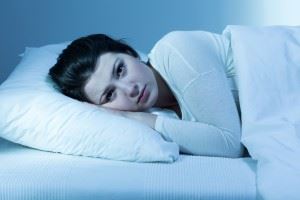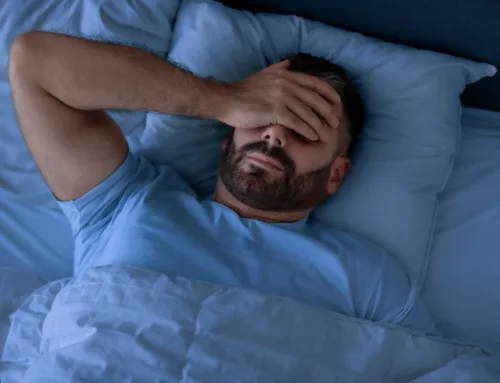Natural Alternatives to Ambien
Ambien is a drug prescribed to treat insomnia. It is a non-benzodiazepine drug, called a “z-drug”, that is supposed to have the effects of Xanax and Valium, but without the risk of addiction. However, it has been known to cause dependency, especially when people take it for longer than intended. We have even seen cases like this at our facility for alcohol and drug treatment in Charlotte NC. It is usually prescribed for a short period of time in order to help with insomnia, but many people find they can’t fall asleep without it so they become dependent on it.
How Does Ambien Work?
Ambien works by binding to the receptors in the brain that cause relaxation. It does not cause a person to go to sleep but it helps relax the brain so a person can go to sleep. It has side effects that range from mild to major, including stuffy nose, dry mouth, nose or mouth irritation, nausea, constipation, diarrhea, upset stomach, headaches, and muscle pain. The major side effects can be memory loss and sleepwalking. People have been known to do things during the night that they don’t remember. It is believed that people are awake enough to respond to stimuli but the drug keeps them from being able to fully wake up.
If you think you may have an addiction to Ambien or another drug that you started taking in order to fall asleep, give us a call at Freedom Detox treatment center in Charlotte, NC. We can give you the help you need through a customized plan for drug treatment in Charlotte NC. Read on to learn about alternatives to Ambien.
What Is Insomnia?
Insomnia is a sleeping disorder that affects about one-third of the population globally. It is more common in women but both men and women can experience it. Stress, environmental noise, medication side effects, and hormones can all be culprits. Lifestyle choices such as drinking and smoking can also play a part. Drinking a lot of caffeine throughout the day and near bedtime can also cause insomnia.
It can also be aggravated by a chemical imbalance in the brain, which is why drugs such as Ambien work. People with depression often have trouble sleeping.
Setting the Mood
People who have struggled with addiction before, or do not want to put themselves at risk, may be interested in alternatives to prescribed sleep aids like Ambien. There are many things you can do to combat insomnia that does not require drugs. Let’s take a look at some of them.
First, establishing a routine can help. Do something relaxing before bed such as taking a warm bath, going for a slow walk, or doing yoga or meditating. Also, try going to bed at the same time each night and get up at the same time each morning so your body learns to develop a natural routine.
Studies have shown that people who exercise regularly during the day sleep better at night. Try to get physical activity a few times a week. The more energy you use during the day, the easier it may be to fall asleep at night.
Set the mood in your bedroom. Keep it at a cool temperature. Don’t go to sleep with a television on. Try to make your bedroom all about sleep so that when you go to bed, you’ll only think of sleep.
Cut back on liquids before bed so that when you do go to sleep you won’t have to get up in the middle of the night to use the bathroom. Avoid caffeine as well as alcohol. Although drinking can help you go to sleep, it can cause fragmented sleep that will leave you feeling tired in the morning.
Herbal Alternatives to Ambien
There are many herbal remedies that are supposed to help with insomnia. Evidence of their effectiveness is mixed, but if lack of sleep becomes a major problem, it can be worth trying. And because they are natural remedies, it is not likely that they will be habit-forming. However, if you’re addicted to Ambien and need professional help, call Legacy today. We offer affordable drug treatment in Charlotte NC.
Melatonin
Melatonin is a human hormone made by the pineal gland in the brain. Taking it as a supplement can help promote sleep. Some people find it works well, while others do not see any results. In some cases, people have found it to have the opposite effects. It is also used for jet lag and to boost the immune system. It is generally taken in pill form.
Valerian
This herbal root has sedative effects that can help promote sleep. It can also help someone who has trouble staying asleep. It is believed to be a good alternative to prescribed drugs and has little to no side effects. It can be taken as a tea, in a tincture, or in pill form.
Passion Flower
Insomnia that is caused by worry or stress can be helped with passionflower. It is used for minor sleep problems in children and adults because it has no side effects. It can be taken as a tea or tincture.
Chamomile
Well known for being a calming tea, this herb is safe for kids and adults. It is used for insomnia and general restlessness and irritability because of its calming effects. It can also be put in the bath to soothe nerves, diluted to make massage oil, or used in aromatherapy.
Lavender
Another herb known for being soothing, this is a tonic for the nervous system. It can be used in baths before bed to promote sleep, used in massage oil, or inhaled. It comes in tea or essential oil.
Poppy
Fields of poppies put Dorothy and her friends to sleep in the Wizard of Oz, and it can help people with sleeping problems. It can be found in herbal remedies for insomnia in combination with other herbs. It can be found as a tea, but it is often mild so a stronger tincture is recommended for treating insomnia.
St. John’s Wort
This herb is often used to treat mood disorders or depression, but it can also relieve chronic insomnia. It comes as a tincture or pills. It can have side effects, such as sun sensitivity, so if those occur discontinue use.
Get Help for Ambien Addiction at Freedom Detox
Struggling with an addiction to Ambien? Call Freedom Detox today to get the help you need. An admissions counselor is waiting to talk with you about substance abuse and recovery. We offer outpatient programs designed to let you continue to work and meet family obligations. Call us today to discuss the many treatment options we offer. We have alternative therapies not found in other facilities that allow us to offer you an individualized program.
Call (800) 475-2312 or get in touch with us online today to learn more about our Ambien detox program.










